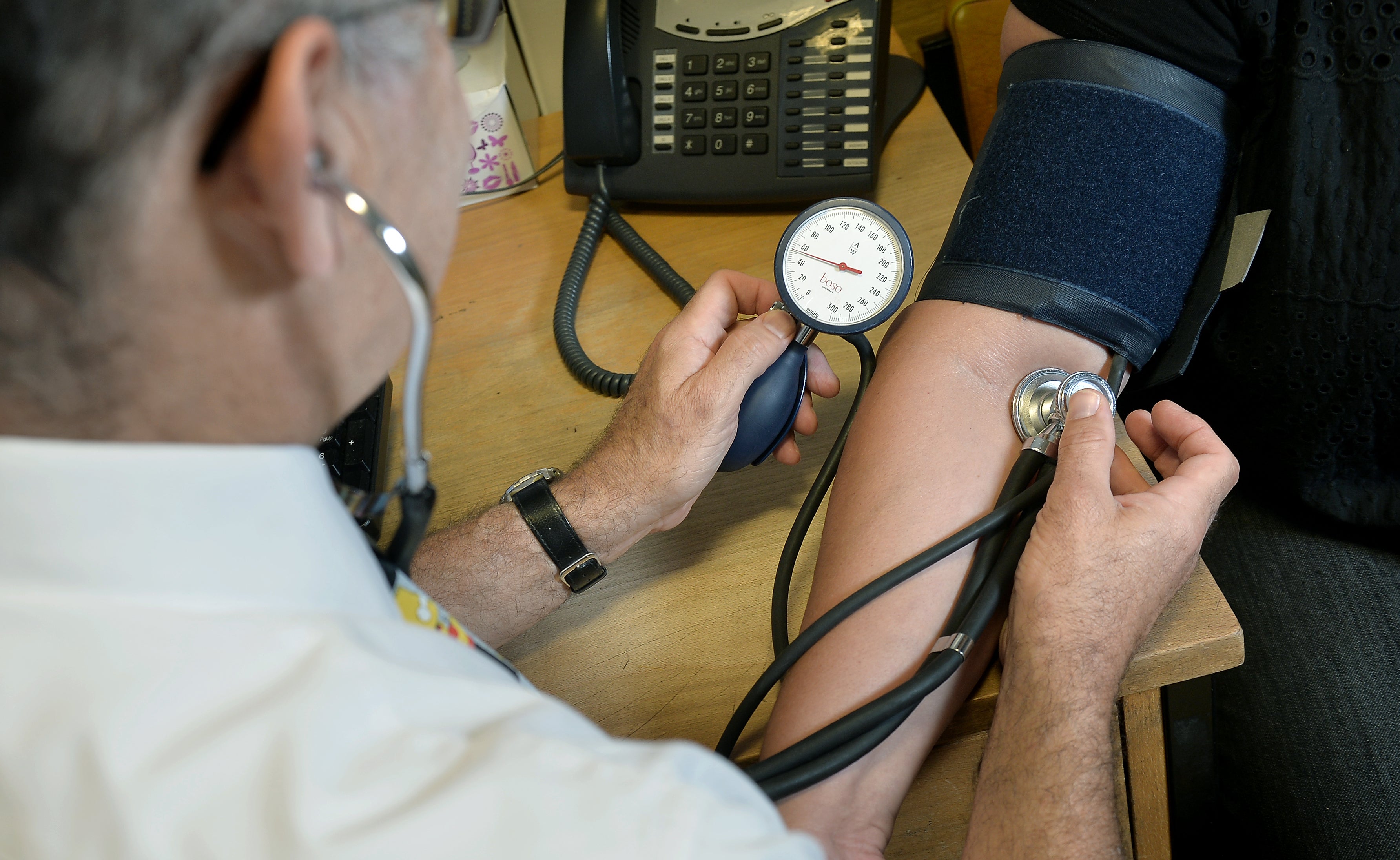Sickness in the workforce is keeping the UK economy on the critical list
A new report from the British Medical Association highlights how important it is to look after the health of the nation, writes James Moore


“The country is getting sicker,” says the British Medical Association (BMA) in a new report.
Its intervention is very timely, as policymakers desperately try to find economic growth. Business groups tell the government they might be able to deliver it if they would just allow more workers to come in from overseas to tackle the nation’s labour shortages.
While that would clearly help, another way to ease the problem of the lead weight these have attached to the feet of the economy would be to address the failing health of hundreds of thousands across the UK.
The number of people rather unfortunately described as “economically inactive” has been growing. More than one in five working age adults are now in that category per the latest release from the Office for National Statistics (ONS). It is at a record level, at least so far as men are concerned.
While it also includes people like students and carers, a growing cohort of working age adults have left the labour force as a result of long-term sickness. Many, but not all, of them are in their fifties. Covid-19 has obviously played a role. But this is not just down to the coronavirus and its long term impact on the body, as the BMA explains. In fact, it says the nation’s health was deteriorating “before anyone had even heard of Covid”.
Increases in life expectancy started to stall in 2011 and the BMA says that the “the amount of time that people spend in poor health has also increased”. No wonder. A decade of Tory austerity left the NHS in a deep crisis. Ditto other services people rely upon for support. Economy insecurity, meanwhile, has boomed.
The nation may have benefitted from low unemployment but millions of people have been struggling in insecure gig economy jobs. The result of all this is that people are spending more and more time in ill health. Trouble is, will that be enough to move a government that I feel has institutionalised callousness?
Cannily, the BMA also zeroes in on something that might: the UK’s sick workforce greatly contributes to keeping the economy on the sick list.
“The UK has a higher amount of preventable illness than comparable European countries, and the number of working-age people reporting multiple health conditions has skyrocketed in recent years,” the report says.
“The high rate of ill health is already affecting our economic prosperity, as more and more people leave the labour market and the productivity of those in work falls. This is against a background of stagnating productivity over the last decade. What the government is failing to grasp is what others have long known. Our economy is dependent on a healthy population, and without action to improve health, the economy will remain sick.”
Yes, yes, and thrice yes. Of course a sick workforce is going to translate into a sick economy. You could put a jellyfish in No 10 and it would recognise that. Trouble is, while successive Tory prime ministers and chancellors haven’t been short of crises to tackle – we’ve all felt their effects – they’ve completely failed to get to grips with the issue. Instead they’ve focused their attention on the pursuit mad ideological crusades and gaslighting the public about their failures. The bitter fruits of this can be seen in the chilly numbers released by the ONS concerning the national workforce.
A first step towards addressing the problem, as the BMA recognises, is to tackle people’s economic insecurity. If you don’t know from week to week whether you’ll be able to afford to eat or heat your home you’re going to get ill. Duh.
The government has gone some way towards addressing the latter with its energy price guarantee, while benefits have at least been uprated in line with inflation. But, as I wrote yesterday, that hasn’t happened in six of the past ten years and the poor are suffering from a rate of inflation that is considerably higher than the official rates because the rise in the cost of staples such as food is outpacing it.
Public services have, meanwhile, been eroded while policies to improve public health have been derided as examples of the “nanny state”.
They should be pursued with renewed zeal. It isn’t “nannying” to try and educate people about the malign effects of things like alcohol and tobacco. It isn’t “nannying” to promote the benefits of eating healthily. At least to those who can afford to eat (see above).
Improving the nation’s health and addressing issues of economic insecurity would serve as an investment in the nation’s economic health. Of course, that requires funding and it might take a little more borrowing than the chancellor is comfortable with. But Jeremy Hunt should remember that borrowing to invest is good borrowing. And it would pay for itself in term of economic returns.
In the 1970s Britain was regularly described as “the sick man of Europe”. That phrase has unfortunately undergone a revival. To put it back in the history books, the government needs to address the nation’s sick workforce.
Join our commenting forum
Join thought-provoking conversations, follow other Independent readers and see their replies
Comments
Bookmark popover
Removed from bookmarks